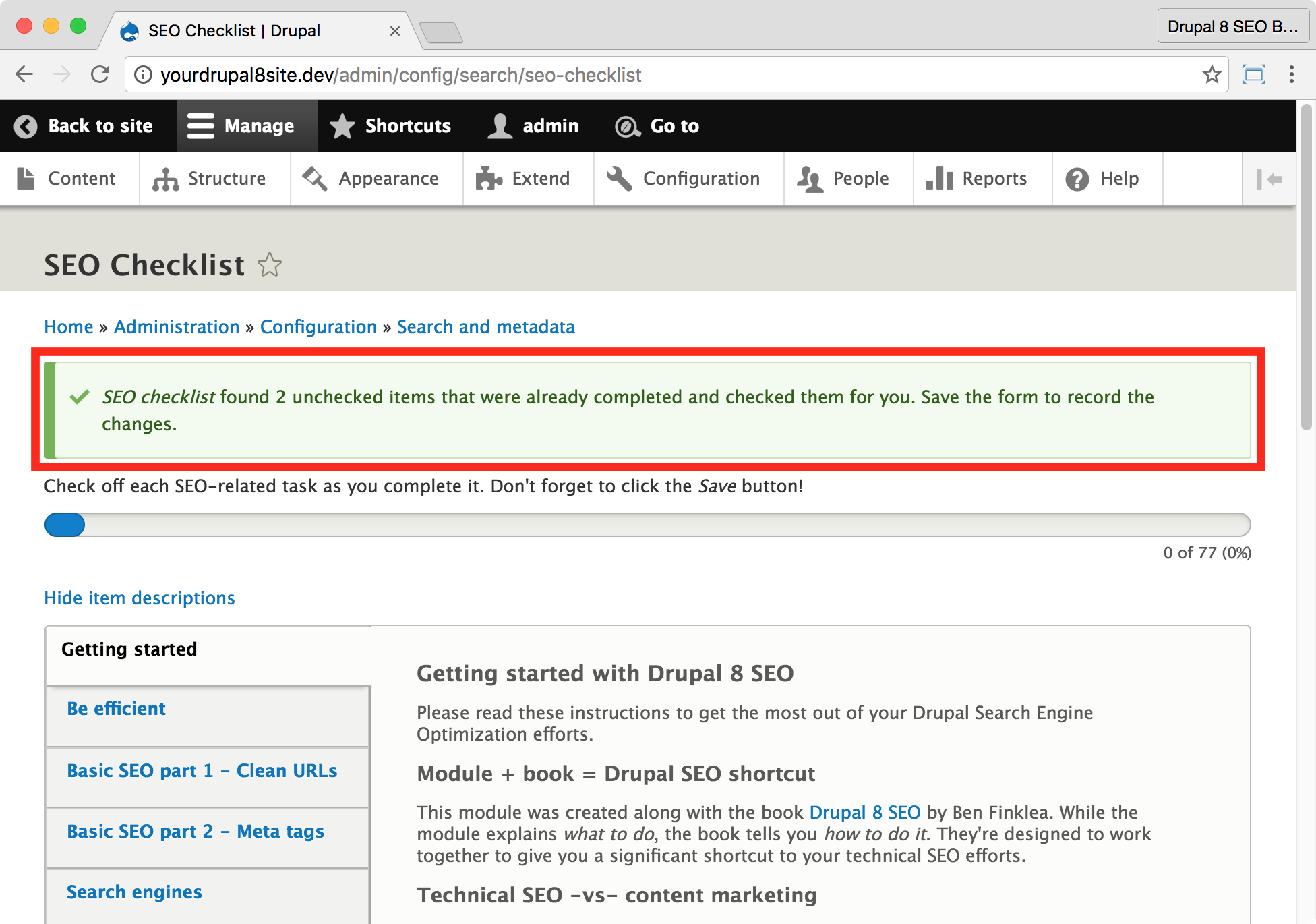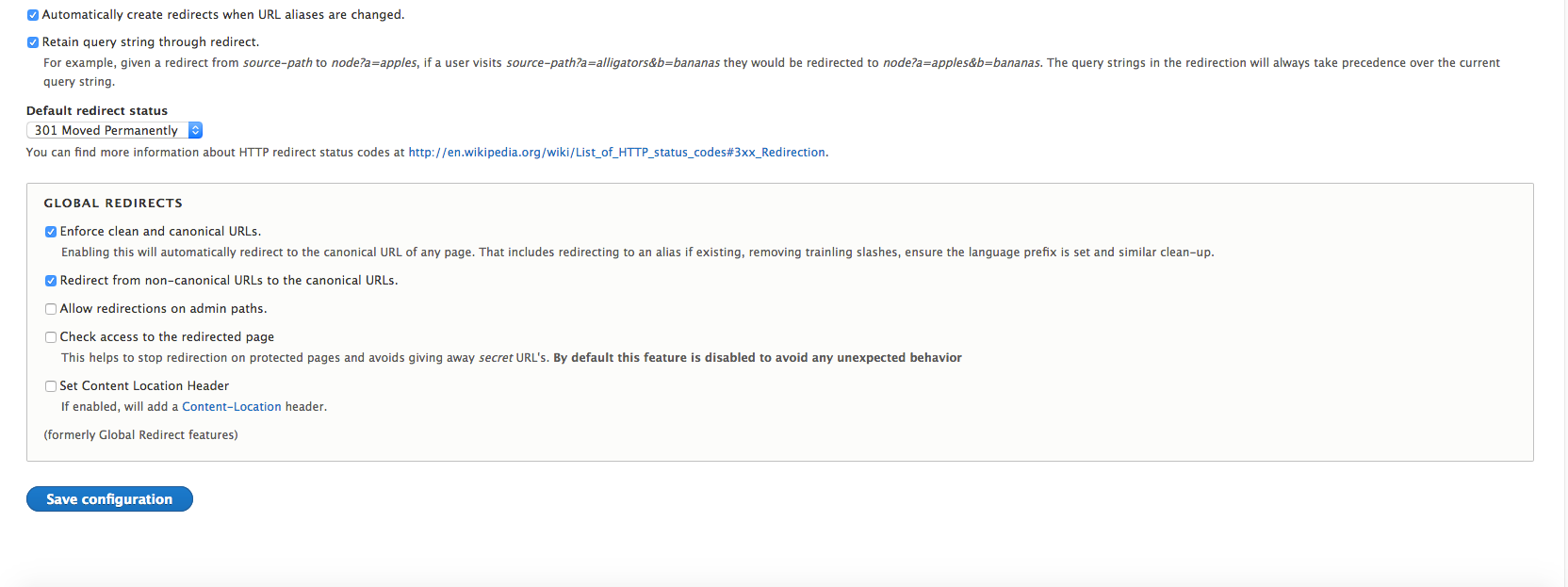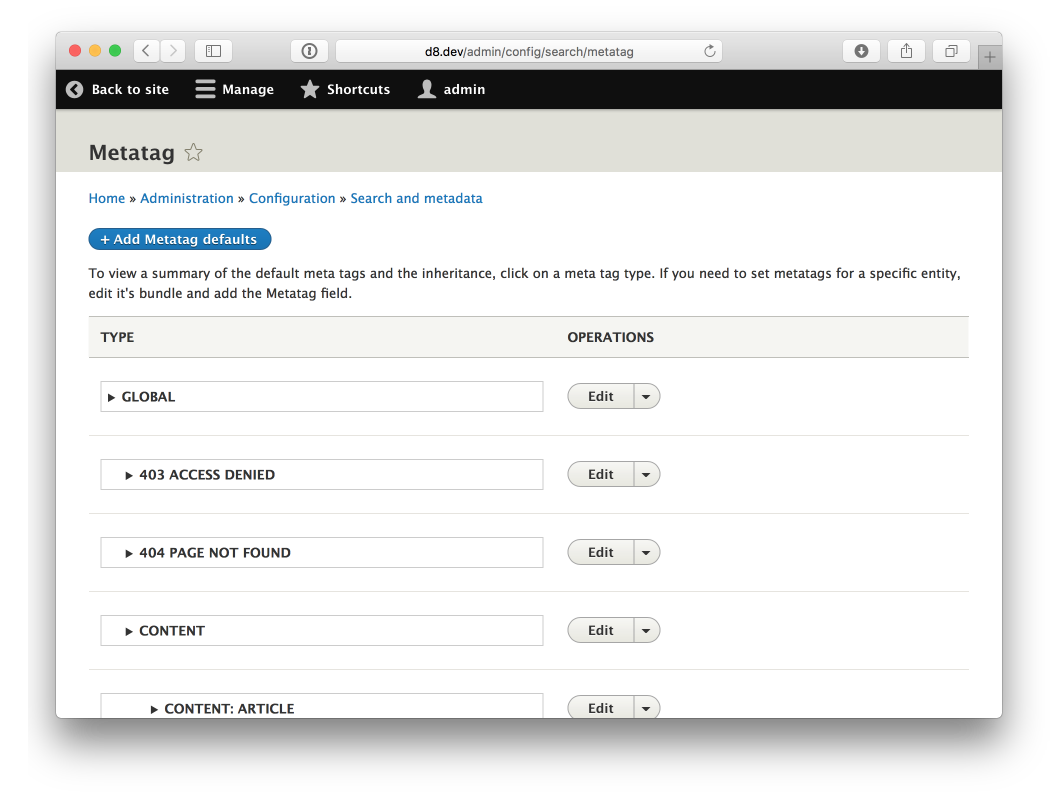Essential SEO Tune-Up for your Drupal Website
Drupal is well known for being a Search Engine Optimization (SEO) friendly Content Management System (CMS) and Drupal 8, the latest version, is the best by far.
Many of the essential requirements for SEO best practices are already baked into the core software architecture, and with a little knowledge and some basic configuration anyone can tune up their website to become faster, drive more traffic, and perform better in the search engine rankings.
Yes, yes, and thrice yes! SEO can be as influential to your organization’s success as any other business building strategy that is available to you. It will require you to think about your business at the most fundamental level and challenge you to articulate your product and services offerings in the most powerful way, and differentiate yourself from the competition. In today's highly competitive markets it is even more critical to cultivate your SEO IQ as a priority.
Ideally, SEO thinking starts before a website is built and your content strategy is being formulated, but with established sites it calls for a willingness to review, reorganize and reconstruct as necessary. Thankfully, in Drupal 8 you have a flexible platform that can work for you no matter where you are on your SEO journey.
Rather than diving into tools and configuration in Drupal 8 to improve SEO, go back one step and remind yourself of the goals of your website and whether your content and website infrastructure support those goals. Viewing your site through your SEO goggles will inform the content, messaging, and tone and personality of your online presence. This is a great way to harness control of your brand identity. You will also need to determine a keyword strategy via a content marketing plan and consider engagement strategies to build relationships with your audience members. All of these are fundamental building blocks for SEO success.
Starting with a keyword strategy makes sense, as this will funnel the right kind of traffic to your website. High traffic is only useful if visitors find what they are actually looking for, so content must match expectations. With proper keyword research and optimized content you can now look at how Drupal 8 can be leveraged to enhance your SEO efforts.
As SEOs, we’ve got to be asking ourselves, ... how do we build up an association between our brand or our domain and the broad keywords, terms, topics, phrases
Drupal 8 is SEO “ready” out of the box, but you will still need to download and configure a number of downloadable modules to get the most out of this content management system. Sometimes it is difficult to know where to start as there are many factors that play into effective SEO and it is hard to prioritize them. This is where the SEO Checklist module comes in.
The module, by itself does not improve your SEO efforts, but it provides a clever roadmap and list of tasks that will aid you in putting your SEO plan into effect. As you systematically work through the module's task list, you will be creating a robust infrastructure for ongoing SEO success. If you work on a number of websites this tool will help you keep track of what you have done with each one.

Drupal is phenomenal for SEO. I've worked in Drupal for 10 years and experienced firsthand how positively search engines respond to a properly optimized Drupal site. Customers have tripled traffic in weeks after upgrading from another platform.
The core Drupal 8 software contains some SEO-friendly features ready to go, and some that require enabling and configuration. Additionally, there are other contributed modules that can be downloaded. The SEO Checklist module has a list of modules that it recommends. Together, these modules will address on-page SEO requirements involving data that search engines track on websites, including:
- Title Tags
- Meta-descriptions
- Paths
- proper use of subheads
- keyword use
- XML sitemaps
Sign up for Google Analytics, together with Google Search Console, and follow directions to connect them to your website. These are free tools provided by Google and work together to provide invaluable data on your website traffic, content, keyword usage, sales and conversion data, and much more; all with the ability to generate useful reports that you can share and use to make business decisions. Webmaster Tools are also available for Bing, Yandex (Russia) and Baidu (China) depending on your need. Certain Drupal 8 modules will require you to have at least Google Analytics installed. This is a good primary step before installing modules.
The Metatag module is very important as it helps search engines find key info they are looking for on a page like the title tag and meta description for the page itself. By filling out meta tags as you go through your content creation workflow you allow the module to place this info in the header of the web page where it is expected to be.
One of the Drupal 8 modules that automates a very cumbersome task is the Redirect module, which create 301 redirects--essentially telling Google that your content has moved if you take existing content and place it in a new URL. That way you still retain any SEO juice that the content had already earned.

The Pathauto module also add convenience, as it automatically creates SEO-friendly URLs when you create content. However, in my experience, you should take a look at each URL and, sometimes, you'll need to fine-tune them by hand to make them look better on search results, and make them more click-worthy.
Because websites typically evolve over time with changes to content, new pages, deletion of old pages and so on, it means that search engines are playing a constant game of catch-up, so in order to keep things current, the Simple XML Sitemap module ( This module aims to be a replacement for the XML Sitemap module for Drupal 8) updates itself as changes are made, so that search engines can always get the latest version of your website to index.
Additional Tips to Elevate Your SEO
Run some diagnostics to understand what visitors are searching for internally on your site This is a great tactic to discover what your users are searching for and give you an indication if there is a content gap between what they want and what they find. This can be a real opportunity to develop fresh content, optimized for those searchers. And, amazingly, you can use this principle to constantly revise and refine your content to climb up the search rankings. The take-a-way here is that once content is created on your website do not let it stagnate. Search engines will revisit and catalog your site periodically. You can speed up this process by making changes and then re-submitting the page individually to Google or Bing to re-index.
For those of you who wish to operate on the cutting edge, look to tools like the Google AMP module to convert pages to the AMP standard, which optimizes for mobile. Also, explore what Resource Description Framework RDF UI module does to integrate Schema.org and the effort to provide richer search results.
Finally, be aware that SEO is achieved by degrees, and that there is always room for improvement. If, as they claim, the underlying goal of search engines to find the best information and the best user experiences, we all need to look at our websites holistically, which also means looking at every factor that could impact the visitor, including the speed and performance of the site, security and how well the site plays for mobile devices.

Many Drupal websites rank very highly in Google, and Drupal has established itself as an excellent marketing platform for all types of organization, including nonprofits, government agencies, and enterprise level businesses. Drupal 8, in particular, is heavily optimized for marketing professionals with core functionality that enhances SEO and drives traffic and engagement.
All the major requirements for a top-notch marketing platform are present, including fully responsive design for mobile, multi-language capabilities, built-in speed enhancements and an advanced Tagging and Taxononomy system that supports SEO, and simplified content creation and management with options for personalization. Top sites like Linux, Harvard University and GE Transportation are built and promoted entirely on Drupal.
Good SEO Means Keeping One Eye on the Future
Drupal 8 is a proven SEO ecosystem that is gaining momentum, but there are always new trends and plot twists to contend with. Nobody knows for sure what the future brings, but new SEO challenges lie ahead. The new mobile dominated future, rise of voice and conversational searches, ubiquitous digital assistants like Siri, Alexa and Google Assistant, and even the steady rise of Artificial Intelligence promise an interesting ride. Stay tuned and SEO on.





Join the Discussion +